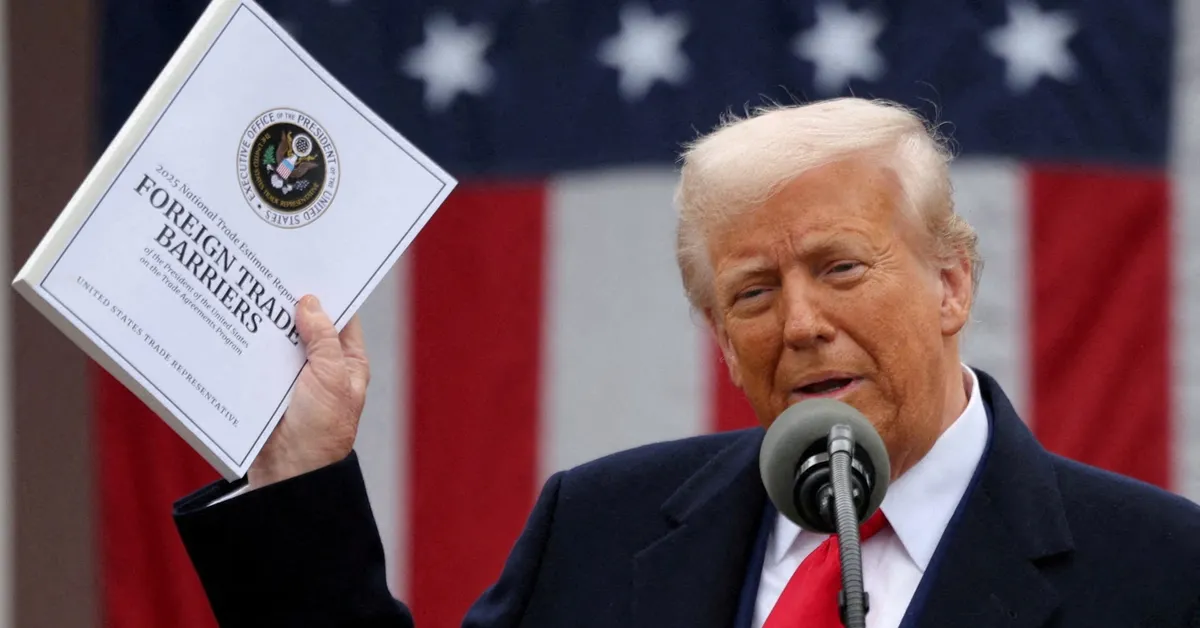
On April 6, 2023, over 50 countries reached out to the White House, signaling their interest in initiating trade talks. This development comes amid the enforcement of sweeping new tariffs by the Trump administration, which have ignited significant global economic uncertainty. During an interview on ABC News' 'This Week,' Kevin Hassett, the Director of the U.S. National Economic Council, defended these tariffs and denied any suggestion that they were intended to destabilize financial markets to pressure the U.S. Federal Reserve into cutting interest rates.
Hassett emphasized that there would be no political interference with the central bank's decisions. This statement follows a Truth Social post by President Trump, in which he shared a video insinuating that the purpose of the tariffs was to intentionally impact the stock market, thus prompting a reduction in interest rates. Similarly, in a separate interview on NBC News's 'Meet the Press,' U.S. Treasury Secretary Scott Bessent played down fears regarding the stock market's recent downturn, insisting that there was no imminent threat of a recession stemming from the tariffs.
President Trump sent shockwaves through international economies with his announcement of broad tariffs on U.S. imports on Wednesday. This move triggered retaliatory measures from China and raised fears of a potential global trade war and economic recession. In response to these developments, senior Trump administration officials attempted to frame the tariffs as a strategic repositioning of the U.S. within the global trade landscape, suggesting that the economic disruptions would be a temporary consequence.
Since Trump's declaration of a new global tariff regime—more aggressive than most analysts had anticipated—U.S. stocks have plummeted by approximately 10% over just two days. Analysts and large investors attribute this sharp decline to Trump's assertive tariff policies, which many economists and the head of the U.S. Federal Reserve warn could exacerbate inflation and hinder economic growth.
The markets, now reeling from the effects of Trump's tariffs, brace for another week of potential tariff turmoil. Investors remain on edge following the worst week for U.S. stocks since the onset of the COVID-19 pandemic five years ago. Hassett noted during his ABC News interview that the tariffs had already prompted contact from more than 50 countries looking to engage in trade discussions with the U.S.
Notably, Taiwan's President Lai Ching-te proposed a framework of zero tariffs for negotiations, offering to dismantle trade barriers without imposing reciprocal measures. He also indicated that Taiwanese companies would increase their investments in the United States, further highlighting the potential for collaborative economic efforts despite the current turmoil.
Contrary to the prevailing concerns among economists, Hassett expressed optimism, predicting minimal impact on consumers as exporters may lower prices. Bessent also shared a positive outlook on NBC News, stating that the recent job growth numbers exceeded expectations, which bodes well for the economy. "We can see from the jobs number on Friday, which was well above expectations, that we are moving forward, so I see no reason to price in a recession," Bessent concluded.
As the situation continues to evolve, the implications of Trump's tariffs on the global economy remain to be seen, with both opportunities and uncertainties lying ahead.